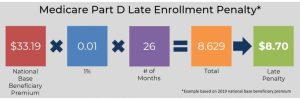Table of Contents
-
- Introduction
- What Medicare Plans Cover Eyelid Surgery?
- How to Maximize Your Medicare Coverage for Eyelid Surgery
- Understanding the Cost of Eyelid Surgery with Medicare
- What to Expect When Applying for Medicare Coverage for Eyelid Surgery
- Exploring Alternatives to Medicare Coverage for Eyelid Surgery
- Conclusion
“See the Benefits of Medicare Eyelid Surgery Coverage – Get the Vision You Deserve!”
Introduction
Medicare eyelid surgery coverage is a benefit offered by Medicare to help cover the cost of eyelid surgery. This type of surgery is used to correct drooping eyelids, which can cause vision problems and other health issues. Medicare covers the cost of the surgery, as well as any related medical expenses. It is important to understand the coverage and eligibility requirements for Medicare eyelid surgery coverage in order to make sure you are getting the most out of your benefits. This article will provide an overview of Medicare eyelid surgery coverage, including eligibility requirements, covered procedures, and other important information.
Find Medicare Plans in 3 Easy Steps
We can help get up to $0 monthly premium Medicare plans
What Medicare Plans Cover Eyelid Surgery?
Medicare plans typically cover eyelid surgery, also known as blepharoplasty, when it is deemed medically necessary. This type of surgery is used to correct drooping eyelids, which can impair vision and cause other medical issues.
In order to be eligible for coverage, the procedure must be performed by a qualified physician and must be deemed medically necessary. Medicare will cover the cost of the surgery if it is performed to correct a functional impairment, such as a drooping eyelid that is blocking vision. Medicare will also cover the cost of the surgery if it is performed to correct a medical condition, such as ptosis, which is a drooping of the upper eyelid.
In addition to the cost of the surgery, Medicare will also cover the cost of any necessary follow-up care, such as medications or physical therapy. Medicare will also cover the cost of any necessary tests or diagnostic procedures that are required prior to the surgery.
It is important to note that Medicare does not cover cosmetic eyelid surgery, such as surgery to reduce wrinkles or to change the shape of the eyelids. Additionally, Medicare does not cover any costs associated with the use of anesthesia or any other related costs.
If you are considering eyelid surgery and would like to determine if it is covered by your Medicare plan, it is important to speak with your doctor and your Medicare provider to discuss your options.
How to Maximize Your Medicare Coverage for Eyelid Surgery
Eyelid surgery, also known as blepharoplasty, is a popular cosmetic procedure that can help reduce the appearance of wrinkles and sagging skin around the eyes. While Medicare does not typically cover cosmetic procedures, there are certain circumstances in which it may cover eyelid surgery. Here are some tips to help you maximize your Medicare coverage for eyelid surgery.
1. Check Your Eligibility: Before you can receive Medicare coverage for eyelid surgery, you must first determine if you are eligible. Generally, Medicare will cover eyelid surgery if it is deemed medically necessary to improve vision or treat a medical condition.
2. Get a Referral: If you are eligible for Medicare coverage, you will need to get a referral from your doctor. Your doctor will need to provide documentation that the procedure is medically necessary and that it is the best course of treatment for your condition.
3. Choose an In-Network Provider: Medicare will only cover eyelid surgery if it is performed by an in-network provider. Make sure to research providers in your area to find one that is in-network with Medicare.
4. Understand Your Costs: Medicare will cover some of the costs associated with eyelid surgery, but you may still be responsible for some out-of-pocket expenses. Make sure to understand what your costs will be before you proceed with the procedure.
By following these tips, you can maximize your Medicare coverage for eyelid surgery. Be sure to do your research and understand your costs before proceeding with the procedure.
Understanding the Cost of Eyelid Surgery with Medicare
Eyelid surgery, also known as blepharoplasty, is a surgical procedure that can improve the appearance of the eyelids. It can be used to correct drooping upper eyelids, reduce puffiness in the lower eyelids, and remove excess skin and fat from the eyelids. While eyelid surgery can be beneficial for many people, it is important to understand the cost of the procedure and how it is covered by Medicare.
Medicare covers eyelid surgery in certain circumstances. If the procedure is medically necessary, Medicare Part B may cover the cost of the surgery. This means that the surgery must be performed to improve vision or to treat a medical condition, such as ptosis (drooping eyelids) or entropion (inward-turning eyelids). Medicare will also cover the cost of eyelid surgery if it is performed to treat a skin condition, such as dermatochalasis (excess skin on the upper eyelids).
In order to be eligible for coverage, the procedure must be performed by a Medicare-approved provider. The provider must also submit a claim to Medicare for the procedure. Medicare will then review the claim and determine whether or not the procedure is medically necessary and whether it is covered by Medicare.
If the procedure is covered by Medicare, the patient will be responsible for paying a portion of the cost. This portion is known as the coinsurance. The coinsurance amount is typically 20% of the Medicare-approved amount for the procedure. The patient may also be responsible for paying a deductible, which is a fixed amount that must be paid before Medicare will begin to cover the cost of the procedure.
In addition to the coinsurance and deductible, the patient may also be responsible for paying any additional costs associated with the procedure. These costs may include the cost of anesthesia, hospital fees, and any other fees associated with the procedure.
It is important to understand the cost of eyelid surgery and how it is covered by Medicare before undergoing the procedure. Knowing the cost of the procedure and how it is covered by Medicare can help patients make an informed decision about whether or not to proceed with the surgery.
Find Medicare Plans in 3 Easy Steps
We can help get up to $0 monthly premium Medicare plans
What to Expect When Applying for Medicare Coverage for Eyelid Surgery
Applying for Medicare coverage for eyelid surgery can be a complex process. It is important to understand the requirements and the process before submitting an application.
First, it is important to understand that Medicare does not cover all types of eyelid surgery. Medicare will only cover eyelid surgery if it is medically necessary and is performed to improve vision. Medicare will not cover eyelid surgery for cosmetic purposes.
Second, you must meet certain criteria in order to be eligible for Medicare coverage for eyelid surgery. You must be 65 years of age or older, or you must have a disability or end-stage renal disease. You must also have a doctor’s order for the surgery and a referral from your primary care physician.
Third, you must submit an application for Medicare coverage for eyelid surgery. The application must include information about your medical history, your current health condition, and the type of eyelid surgery you are requesting. You must also provide documentation from your doctor that the surgery is medically necessary.
Fourth, you must submit the application to your local Medicare office. The office will review the application and determine if you are eligible for coverage. If you are approved, you will receive a letter of approval and instructions on how to proceed with the surgery.
Finally, you must follow the instructions provided by your Medicare office. This includes scheduling the surgery, obtaining pre-operative tests, and paying any applicable co-pays or deductibles.
By understanding the requirements and the process for applying for Medicare coverage for eyelid surgery, you can ensure that you are prepared and that your application is complete.
Exploring Alternatives to Medicare Coverage for Eyelid Surgery
Eyelid surgery, also known as blepharoplasty, is a cosmetic procedure that can help improve the appearance of the eyes by removing excess skin and fat from the upper and lower eyelids. While Medicare does not typically cover this type of surgery, there are a number of alternative options available for those who wish to pursue this procedure.
One option is to seek coverage through a private health insurance plan. Many private health insurance plans offer coverage for cosmetic procedures, including eyelid surgery. It is important to check with your insurance provider to determine if this type of procedure is covered under your plan.
Another option is to seek financing through a medical loan. Medical loans are available from a variety of lenders and can be used to cover the cost of eyelid surgery. These loans typically have lower interest rates than other types of loans and can be used to cover the entire cost of the procedure.
Finally, there are a number of medical savings accounts that can be used to cover the cost of eyelid surgery. These accounts are typically tax-advantaged and can be used to pay for medical expenses, including cosmetic procedures. It is important to check with your financial advisor to determine if this type of account is right for you.
In conclusion, there are a number of alternatives to Medicare coverage for eyelid surgery. It is important to research all of your options and determine which one is best for you. With the right plan in place, you can receive the care you need without having to worry about the cost.
Find Medicare Plans in 3 Easy Steps
We can help get up to $0 monthly premium Medicare plans
Conclusion
In conclusion, Medicare Eyelid Surgery Coverage is a great option for those who need to have eyelid surgery. It can help cover the costs of the procedure, making it more affordable for those who need it. However, it is important to note that Medicare does not cover all types of eyelid surgery, so it is important to check with your doctor to see if your procedure is covered. Additionally, it is important to understand the costs associated with the procedure and to make sure that you are comfortable with the financial responsibility before proceeding.





